Fayetteville, GA
Pulmonary & Sleep Medicine Associates, LLP Frequently Asked Questions
Established 1986 | Accredited Sleep Lab | Telehealth Sleep Consultations
Established 1986
Accredited Sleep Lab
Telehealth Sleep Consultations
Hours:
Learn More About Pulmonary & Sleep Medicine Associates, LLP
Have a sleeping disorder-related question? We have the answer! Check out our FAQs below to learn more about our company and services.
-
What is a sleep study?
A sleep study is a test that monitors and charts brain waves, heart rhythm, and breathing as the patient sleeps. It also records eye and leg movements as well as muscle tension. Sensors are placed on the head, face, chest, and legs, which send electrical signals to a computer where the sleep activity is recorded. The recording is then interpreted by a board-certified sleep medicine specialist. Sleep disorders are debilitating and often life-threatening conditions. Some of the common sleep disorders are outlined in the other questions. If you are looking for a qualified sleep doctor, call us today.
-
What is sleep apnea?
Sleep apnea occurs when you regularly stop breathing (apnea) or experience shallow breathing (hypopnea) for 10 seconds or longer during sleep. Obstructive Sleep Apnea (OSA) occurs when a blockage or narrowing of the airways is present. Often, throat muscles and the tongue relax during sleep and partially block the airway. Bone deformities, enlarged tonsils, and obesity can put you at risk for OSA. CPAP machines are one treatment that can help relieve some of the systems of sleep apnea.
-
What is Narcolepsy?
Narcolepsy is a chronic neurological disorder that causes overwhelming urges to sleep. Episodes may cause involuntary sleep while working, talking, eating, or driving, or cause sudden loss of voluntary muscle tone. If you suffer from these symptoms, you should get in touch with a sleep doctor.
-
What are the risks of untreated sleep disorders?
If you have a sleep disorder, in addition to excessive sleepiness and fatigue, you may be at risk for high blood pressure, heart failure, high blood pressure in the lungs (pulmonary hypertension), irregular heart rhythms, coronary artery disease, and strokes. If you believe you suffer from a sleep disorder, call a sleep doctor today to learn more about how you can treat it.
-
How is sleep apnea treated?
Continuous Positive Airway Pressure, CPAP, is a noninvasive therapy commonly used to treat sleep apnea. Other treatments may include lifestyle changes, medications, or surgery.
-
What is CPAP/BiPAP (Positive Airway Pressure therapy)?
CPAP (Continuous Positive Airway Pressure) is a medical device that delivers a steady, gentle flow of air through a soft pliable nasal mask worn over the nose, which is used to "splint" open a person's airway during sleep. PAP therapy is the most effective non-invasive treatment available for Obstructive Sleep Apnea. A bi-level therapy device (BiPAP) is a medical device that delivers two levels of pressure during the night – a lower pressure when you breathe out (exhalation) and a higher pressure when you breathe in (inhalation). Your sleep study results and the physician will determine which machine best meets your needs.
-
How does PAP work?
PAP therapy relieves Obstructive Sleep Apnea by using an "air splint" to keep the airway open. The airflow splints the soft tissues in the throat, keeping it from collapsing at night when the muscles relax. The amount of pressure needed is determined during your PAP titration sleep study. Your homecare company will provide you with a machine set at the correct therapeutic level, which normalizes your breathing. Get in touch with a sleep doctor today to learn more.
-
Do I have to breathe harder to get enough air in and out?
No. In fact, it's easier to breathe while wearing PAP therapy if you do not "try" to breathe. PAP therapy will feel strange at first, but after wearing it for a while, you will adjust to it, and breathing will get easier. If you are having trouble getting used to PAP therapy, try wearing it in the evening while watching TV. If you need a CPAP machine, call us today to learn about your options.
-
How often do I have to wear PAP therapy?
PAP therapy should be worn during every sleep period, even during a daytime nap. Sometimes the pressure can be lowered, or PAP therapy can be discontinued after weight loss. However, this is not true in every case. Your sleep doctor can advise you about your situation.
-
Are there any side effects associated with PAP therapy?
Yes. Although side effects may be very annoying, they are minimal considering the benefits obtained. PAP therapy is the most effective conservative treatment for Obstructive Sleep Apnea. The following are some of the most common side effects experienced during the first few weeks of treatment:
- Dry mouth – Keep a glass of water close to the bedside, taking sips throughout the night when necessary. Make sure you have a good, clean seal on your mask. A humidifier may be helpful.
- Dry nose – An over-the-counter saline nasal spray may be used to moisten the nasal passages before bed. A humidifier may be helpful.
- Runny nose – Adjust the humidifier. Seasonal changes can affect the humidifier. Speak to your physician.
If you experience any of these side effects, call your sleep doctor to learn how to alleviate them.
Stockbridge, GA
Fayetteville, GA
STOCKBRIDGE OFFICE
FAYETTEVILLE OFFICE
132 Old Norton Road Suite 101
Fayetteville, GA 30215

Share On: